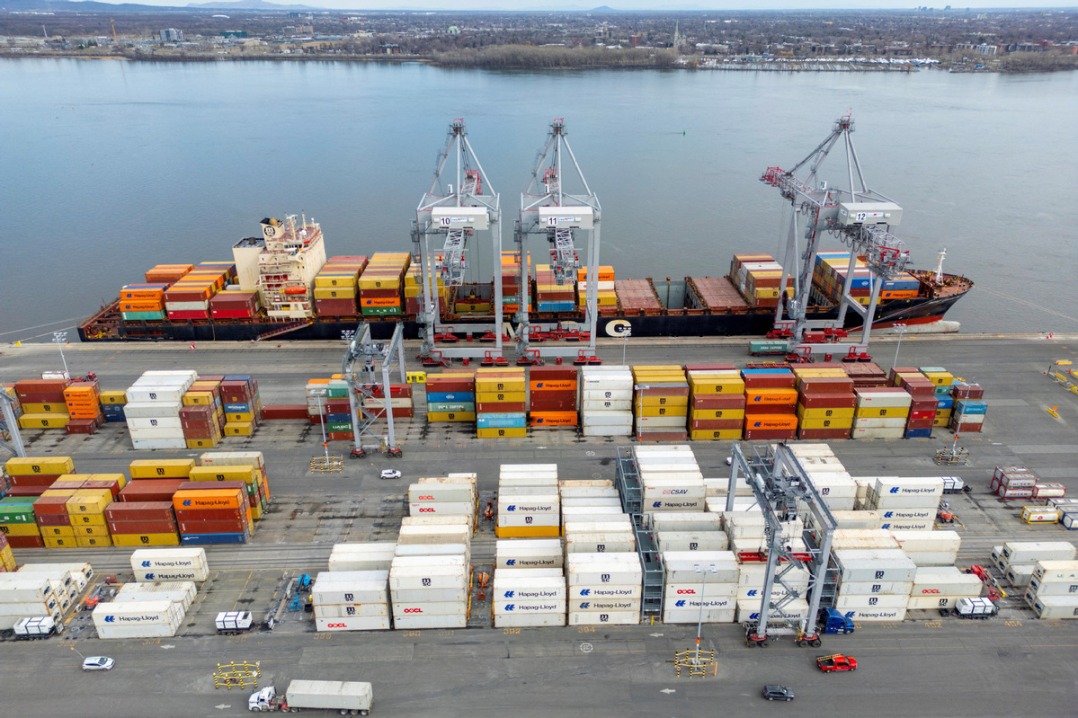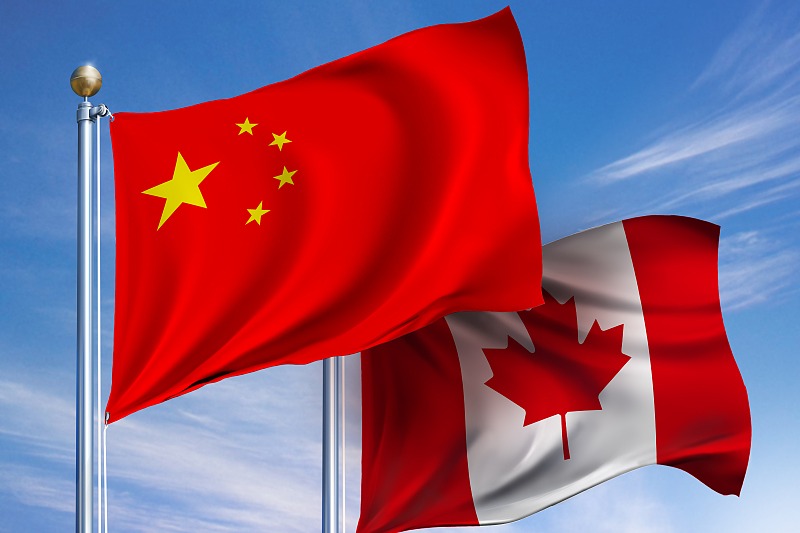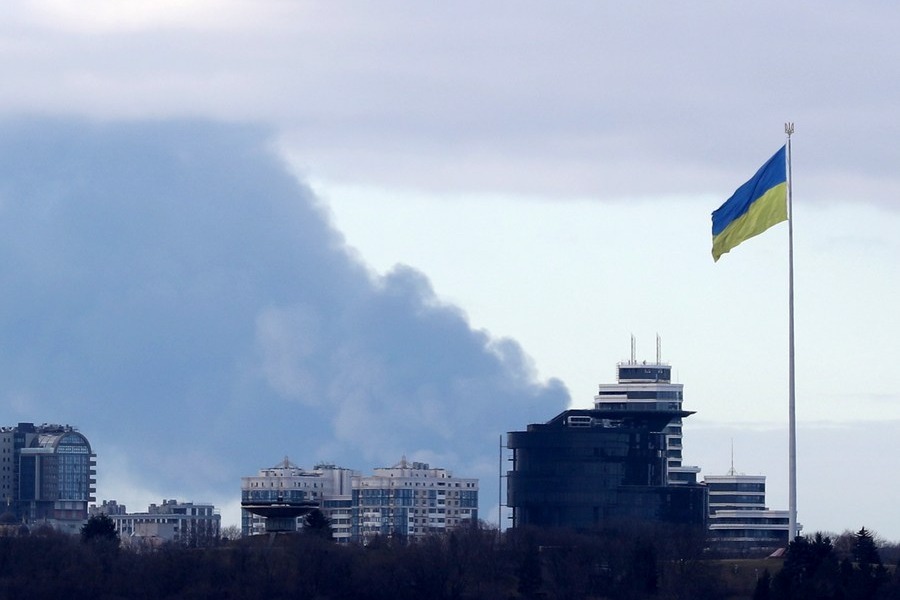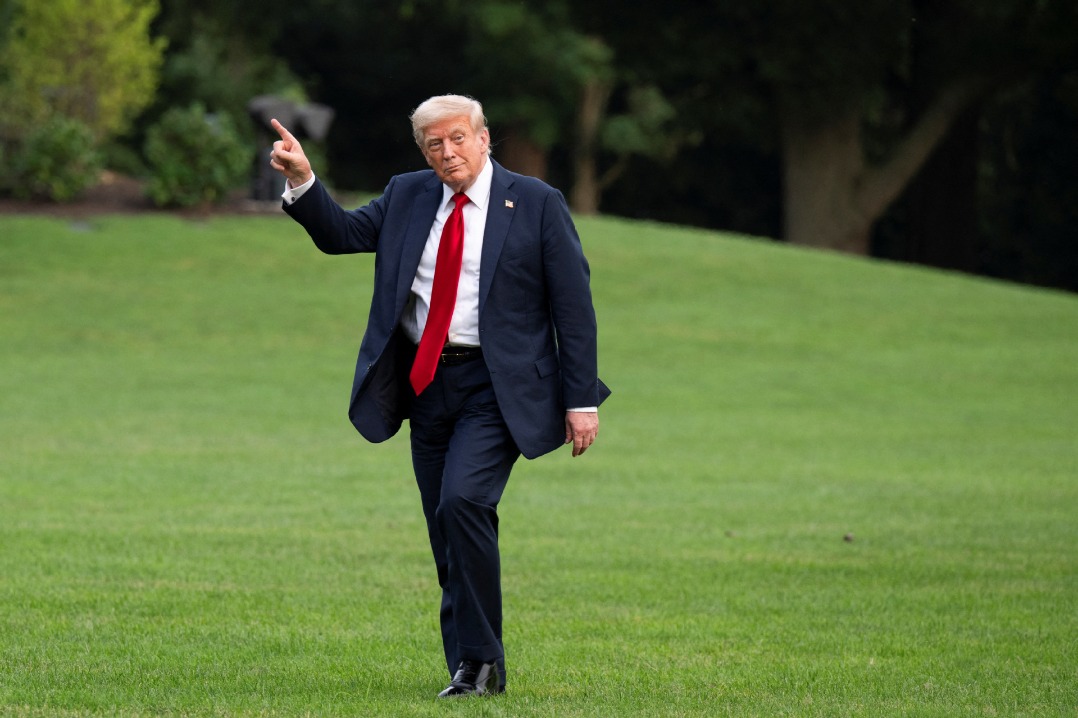Canada faces sweeping tariffs as Trump sets Aug 1 deadline

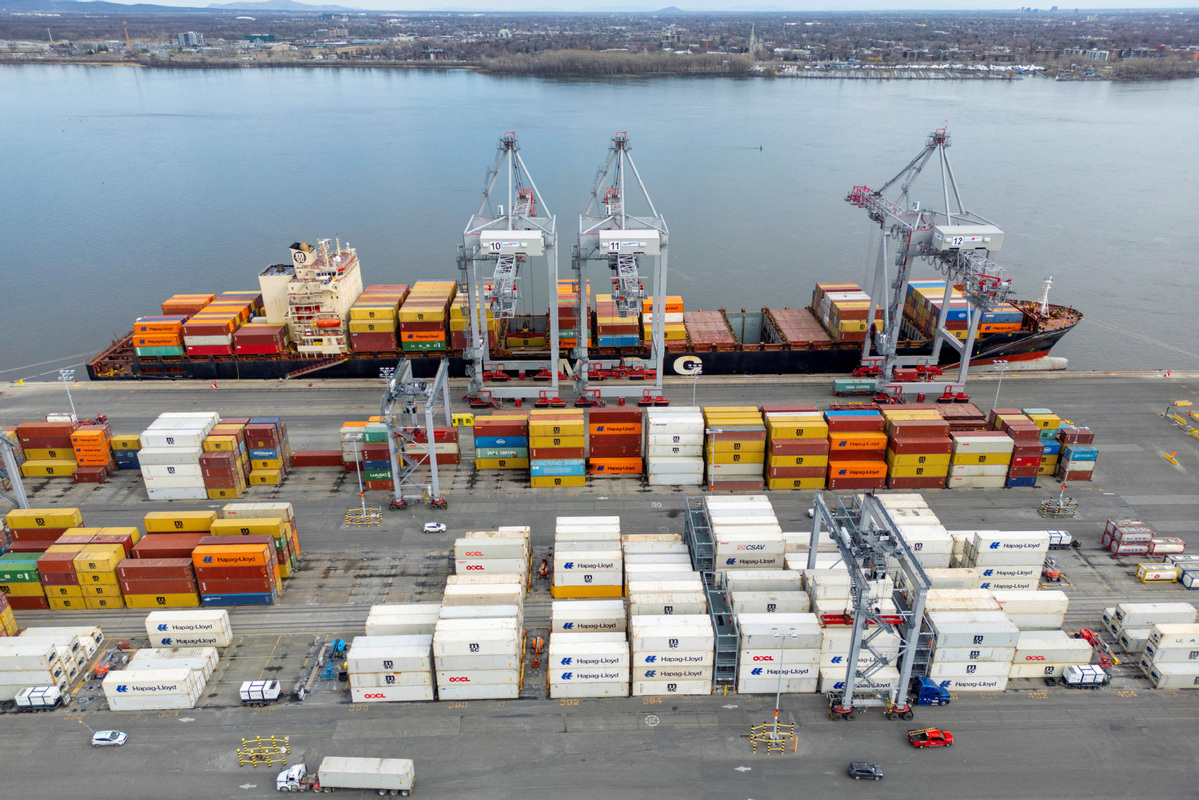
US President Donald Trump is set to impose a 35 percent tariff on Canadian goods and a 50 percent tariff on copper imports, raising fears of job losses and escalating trade tensions.
Mesbah Sharaf, a professor of economics at the University of Alberta, said Trump's sudden announcement of a 35 percent tariff on Canada is part of this pressure campaign, especially with trade talks still underway.
"Feels like pressure to me. I don't think the talks are done, but this move turns up the heat," Sharaf told China Daily.
"It's like he's saying, 'Take the deal or get hit with the tariff.' It is a way to push Canada to move faster," he said.
Trump said on July 10 that he will impose a 35 percent tariff on Canadian goods starting Aug 1.
Canadian Prime Minister Mark Carney later said on social media that trade talks with the US now have a revised deadline of Aug 1.
If the negotiations collapse, Sharaf expects Canada will not remain passive. "We'll definitely respond one way or another," he said.
"Canada could retaliate by adding its own tariffs, seek exemptions, or even deepen trade partnerships with other countries in Europe or Asia.
"For sure there will be a response — what form it takes depends on how hard the final outcome is," he said.
Trump wrote on Truth Social, "if for any reason you decide to raise your Tariffs, then, whatever the number you choose to raise them by, will be added onto the 35 percent that we charge."
Sharaf also questioned the staggered rollout of the tariffs, with implementation delayed despite the advance notifications.
"It feels like a tactic," he said. "Delaying gives them time to negotiate or pressure other countries behind the scenes — while keeping the threat on the table."
Trump also recently announced a 50 percent tariff on copper imports, scheduled to take effect next month.
"It'd hurt (Canada) for sure," Sharaf said "The US buys a lot of our copper, so a 50 percent tariff would likely mean lost business. That could slow down mining and cost people their jobs here in Canada."
Canada will fight back against Trump's 50 percent tariff on copper imports, Industry Minister Melanie Joly said on July 10.
"We'll fight against it. Period," said the minister, without getting into specifics.
Sharaf said the global nature of the copper trade means such tariffs would not stay localized.
"Copper is part of a global market — it's not just Canada and the US.
"If trade slows down between us, it can create shortages, push prices up, and disrupt supply chains for industries that rely on copper such as electronics and electric cars," he said.
Trump has framed the move as a way to promote domestic manufacturing, but Sharaf said the plan could backfire.
"It looks like he is trying to boost US manufacturing by making imported copper more expensive," he said. "But this kind of tariff can backfire — it could end up raising costs for US factories too."
A Canadian foreign policy expert is warning the tariffs could further destabilize the North American trade relationship without achieving its stated goals.
Kim Nossal, a professor emeritus of political studies at Queen's University, said the proposed tariffs appear to be part of a broader pattern of "non-rational" trade measures introduced by Trump.
"The Trump administration's tariffs are driven by a number of different rationales, most of them not very 'rational,'" Nossal told China Daily.
"The non-rationality of the Trump tariffs is exacerbated by Trump's bizarre belief that foreigners, not Americans, pay these tariffs," he said.
Nossal noted Canada exported roughly $5.7 billion worth of copper to the US last year — far below its $34 billion in aluminum and steel exports, but he said the proposed tariffs are still significant in terms of eroding bilateral trust.
The copper tariffs further undermine confidence in the Canada-US trade regime, he said.
Trump has sent notification letters to certain countries about the tariffs, but delayed their implementation until Aug 1 — a pattern Nossal believes reflects the internal contradictions of the tariff policy.
"Because the overall US tariff regime is not at all rational, actually implementing this non-rational regime would result in massive economic disruptions — which is why they keep getting pushed back.
"I do not think this can be called 'strategic' — it is just a recognition that the Trump tariffs, if they are actually implemented, will actually increase economic costs for Americans," he said,
Trump heralded copper as the "most used material by the Department of Defense!" in his social media post, promising to bolster a US copper industry that will dominate the world.
Nossal questioned the feasibility of copper tariffs as a way to boost domestic production, noting the US is far from self-sufficient.
"The copper tariffs seem to be designed to spur domestic American production of copper — but there is no way that the US can meet its own demands for copper with its own production.
If the talks collapse and tariffs proceed, Nossal said Canada is unlikely to retaliate immediately but will instead look to diversify its partnerships.
"I think that the Canadian response will be to continue to seek partnerships globally while trying to manage the tariffs that have already been imposed and whatever new tariffs the US imposes," he said.

















